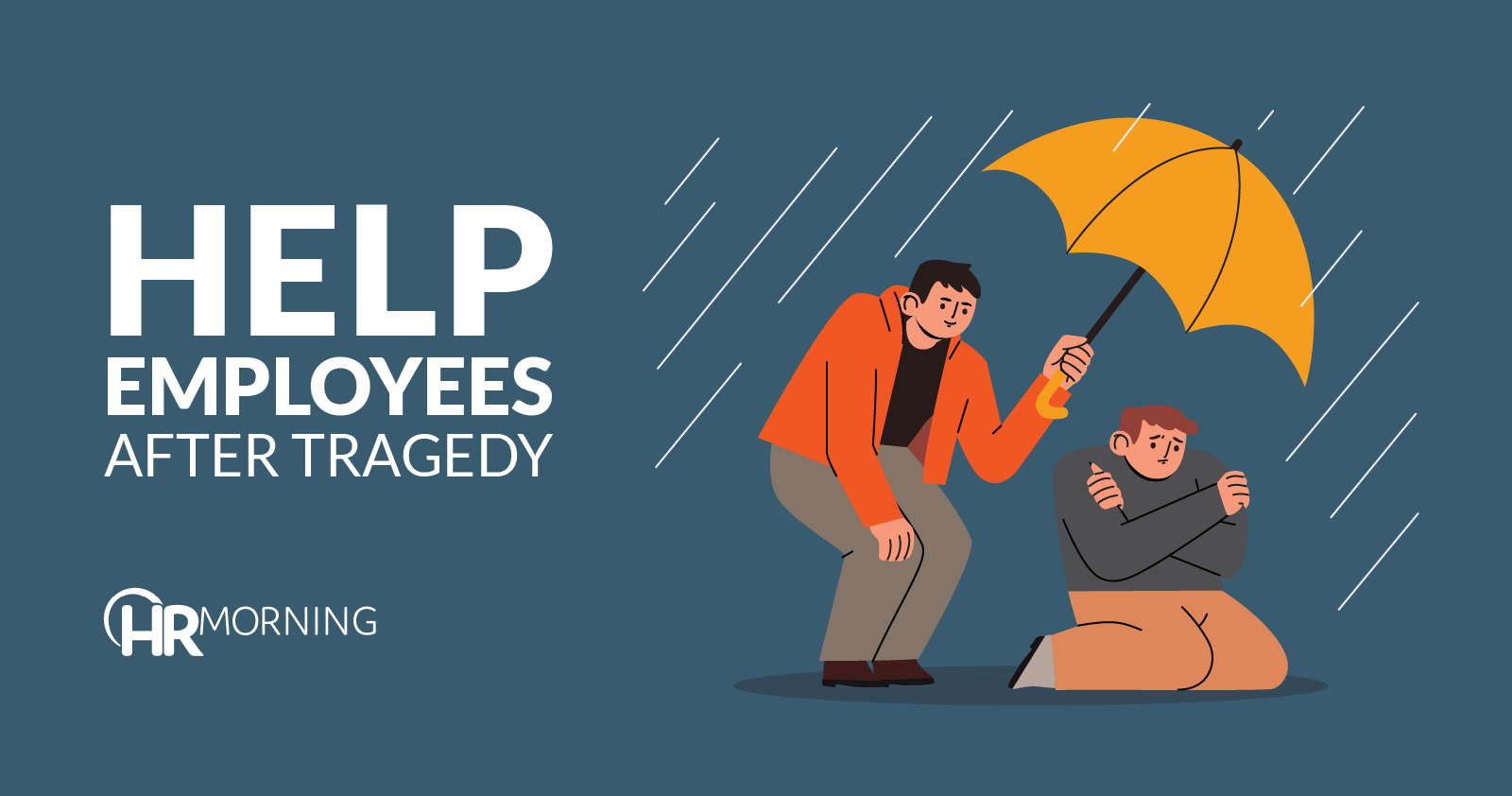How to support employees’ mental health after tragedy

Over the weekend, a gunman opened fire in an LGBTQ+ nightclub in Colorado Springs, killing five people and leaving 17 injured, in what police are calling a hate crime against the LGBTQ+ community.
In times of tragedy, it can be hard to show up – for yourself, your family and work. That’s why it’s important for HR to support employees after a tragedy as best they can. Especially for employees who identify as LGBTQ+, the world after a tragedy like the one over the weekend can feel unsafe.
Even if the tragedy didn’t happen in the employee’s city or even state, the effects and aftermath of a shooting can have a strong impact on any worker, especially if the event hits especially close to home.
Left unchecked, these feelings can cause employees mental distress, make them more prone to burnout and may cause them to mentally “check out” of work. Here are three ways that you can help support employees after a tragedy.
Ask … and then listen
One common misconception when tragedies happen is that they only affect people who are directly involved. However, for employees who are already struggling or more prone to being affected by current events, any type of tragedy can cause turmoil.
Those who are affected may not be open about it without being asked. Even surface-level questions such as, “How are you?” may produce a false answer of “good” or “okay.” Instead, ask specific questions – without probing – to help employees feel comfortable opening up.
Once you’ve asked and gotten an answer, it’s important to follow up by truly listening and providing support and feedback to employees. If they do open up, and then feel invalidated, they’re less likely to be upfront about issues in the future.
Provide resources
Sometimes lending an ear or offering verbal support isn’t quite enough to help an employee. In that case, it’s important to take it a step further by offering employee resources to help them find additional support outside of work.
Depending on the benefits and resources of your company, you may refer a struggling employee to:
- An Employee Assistance Program (EAP)
- Mental health resources through their insurance provider, and
- An employee resource group (ERG) for mental health or another topic, such as LGBTQ+.
Allow time to process
Sometimes employees simply need some time to process tough news or tragedies. Even though this may seem like something they need to do on their own, there are some things that companies can do to help support an employee as they process a tragedy.
Depending on your company’s PTO policy and benefits, you may offer them a mental health day or some time off.
If they seek professional mental health help, consider offering a flexible schedule to help them accommodate appointment times.

